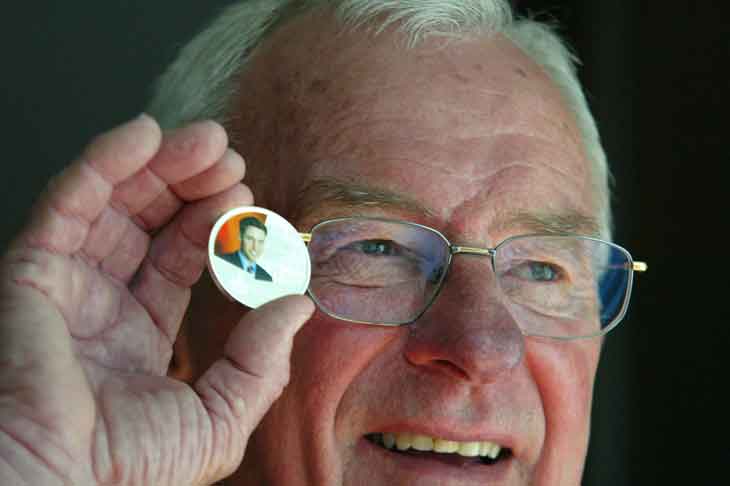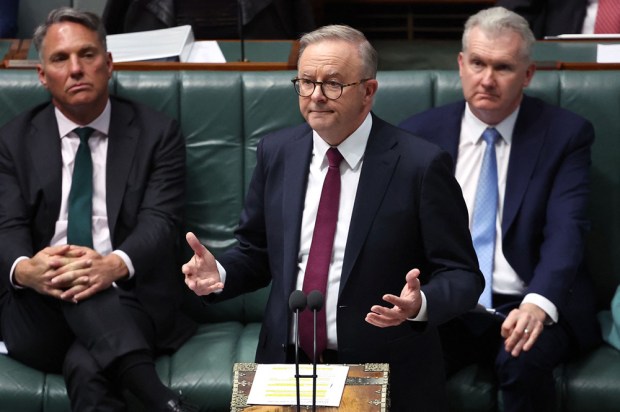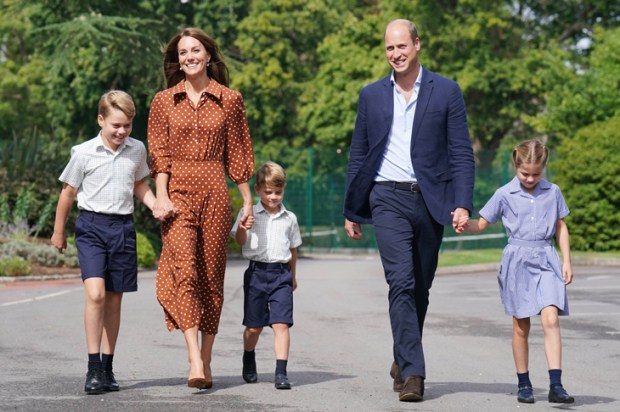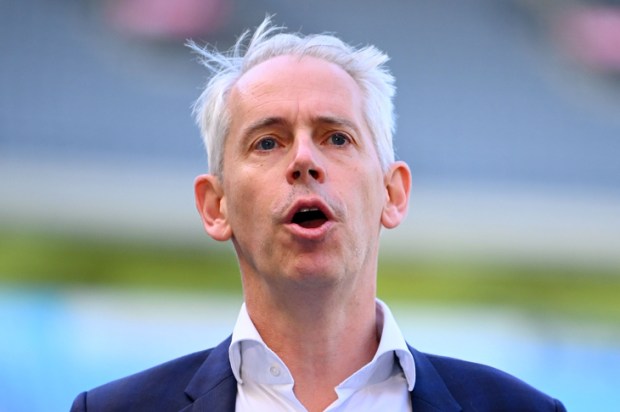Bill Hayden was without doubt the best Labor prime minister Australia never had, a man of great ability, common sense and integrity. A policeman, he had a life before politics in a way which is unusual today.
His first major ministerial task was to introduce universal health insurance. In this, he was ably assisted by Paddy McGuinness, the future editor of the Australian Financial Review and Quadrant.
When they were young, both Bill and Paddy were among the few socialists found at universities then. Typically, this was something they abandoned when they were older and wiser. This is unlike today, when far-left indoctrination seems to have replaced education and almost every powerful institution in the land is inhabited by Bolsheviks seeking to become billionaires.
When he was accused of being both radical and conservative at the 1998 Constitutional Convention, Hayden said that when it was safe and proper to be radical he was, but when it was dangerous, he was conservative.
He was undoubtedly Whitlam’s best minister and certainly best treasurer. When he warned Whitlam that his ‘copper’s instincts’ indicated the Governor-General would sack them, Whitlam declared, ‘No comrade – he wouldn’t have the guts to do it.’
Note that Whitlam did not suggest it would be constitutionally wrong for Sir John Kerr to sack them.
How could he? In Opposition, on Labor’s 170th attempt to bring down a government by blocking a money bill in the Senate, Whitlam had a list of the other 169 occasions tabled. Yet one of the complaints against Kerr is that he didn’t warn Whitlam about this.
With Labor sacked and in opposition, Hayden eventually took over the leadership. He arduously worked to reform the party and make it electable. But when he achieved this, and at the point when, as he said, ‘a drover’s dog could win the election’, he was forced to stand aside for the recently elected Bob Hawke. Hayden became a successful foreign minister, with Hawke later recommending his appointment as Governor-General. Notwithstanding Coalition reservations, Hayden was, like former Labor premier Sir William McKell, an impeccable head of state. While Governor-General, Hayden made comments critical of the Press Council, where I had just been made chairman. David McNicoll made contact with Government House as only a celebrated man-about-town, Packer intimate and Bulletin columnist could, delivering an intriguing offer from the Governor-General.
He would like to see a meeting of the Press Council, and wondered whether we could use Admiralty House.
As chairman, and beforehand, I had pushed both the speedy resolution of complaints, as well as a concentration on the proposition that the freedom and the responsibility of the press were the two sides of the one coin. I argued that we had much to tell the Governor-General. There was some dissent from this view, some members even refusing to go. An overwhelming majority were in favour.
The Governor-General was very much an interested observer, but said nothing during the long proceedings.
At lunch afterwards, I asked him what he thought of the meeting.
His answer was surprising. ‘It reminded me of a branch meeting of the ALP,’ he said to widespread laughter around the table.
I suspect he was also surprised by my reply. I know some Council members were.
‘Perhaps that’s because I was once President of the Bondi Branch of the ALP.’
I said that I thought Labor’s standing orders excellent, ensuring a smooth and fairly run meeting. Much of Press Council meetings were ‘in committee’ with a free and sometimes stormy discussion about what reporters and an editor should have done. Given the Council consisted of some very senior journalists and editors and prominent members of the public, the proceedings were often lively. But when I saw things too heated for our own good, I would call the meeting to order, come out of committee and apply the standing orders. (I would try that at the university too.)
I next saw Bill Hayden at the 1998 constitutional convention. He stood out for common sense and for being one of the few supporting a republican model who was a true democrat. He explained that because John Howard wanted the people to have the opportunity of considering a consensually supported model republic in a referendum, he was working on one. To the surprise of most, he declared that this wasn’t his preferred option.
Hayden said Australia was already a republic and had an Australian as head of state. He saw advantages in the Queen being a final check and balance. (For expressing a similar view, I was condemned by a monarchist from a small group.)
Declaring himself neither a republican nor a monarchist, he declared that he supported the status quo. Why? Because it worked.
Listening to him, I could hear Michael Kirby’s Charter for ACM which distinguished it from being just a royalist or monarchist society. Hayden would have probably preferred the second of the two alternative names considered at ACM’s formation, ‘Leadership Above Politics’.
Hayden dismissed the polls which terrified some Liberal politicians into jumping onto the republican bandwagon, believing it inevitable. Albanese should have listened to him over early Voice polling.
It wasn’t that the polls were wrong but because people had not yet heard the other side. How could they have?
Hayden predicted, with great accuracy, almost two years out and on the record in Hansard, that the republicans would lose the 1999 referendum.
He warned about the weaknesses of the model some monarchist MPs were unwisely pushing monarchists to endorse, the so-called ‘least-worst’ McGarvie model which was allegedly causing Turnbull sleepless nights. Every monarchist delegate rejected it. I agreed, adding that if we endorsed it we destroy monarchist morale with the newspapers ready with the headline, ‘Monarchists dump Queen’.
Got something to add? Join the discussion and comment below.
Get 10 issues for just $10
Subscribe to The Spectator Australia today for the next 10 magazine issues, plus full online access, for just $10.
You might disagree with half of it, but you’ll enjoy reading all of it. Try your first month for free, then just $2 a week for the remainder of your first year.














Comments
Don't miss out
Join the conversation with other Spectator Australia readers. Subscribe to leave a comment.
SUBSCRIBEAlready a subscriber? Log in